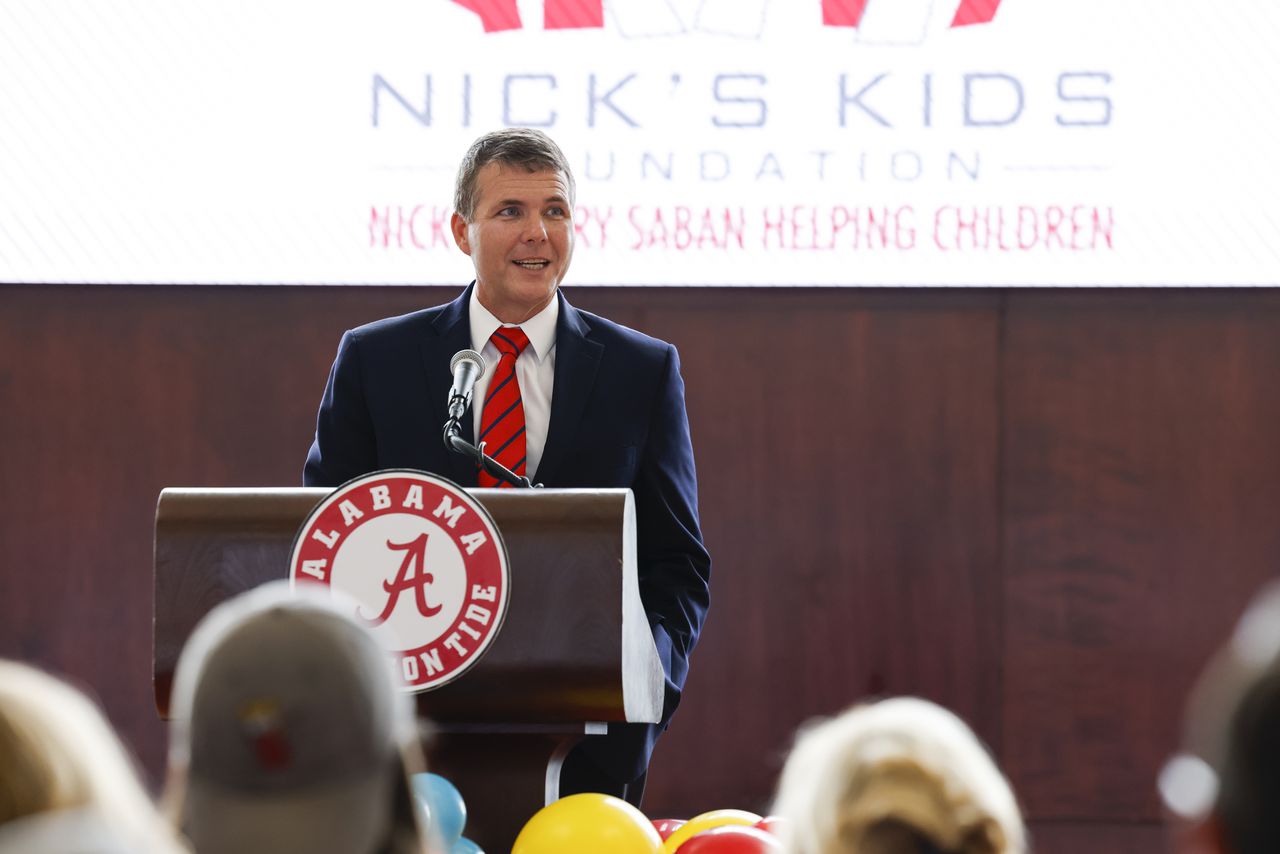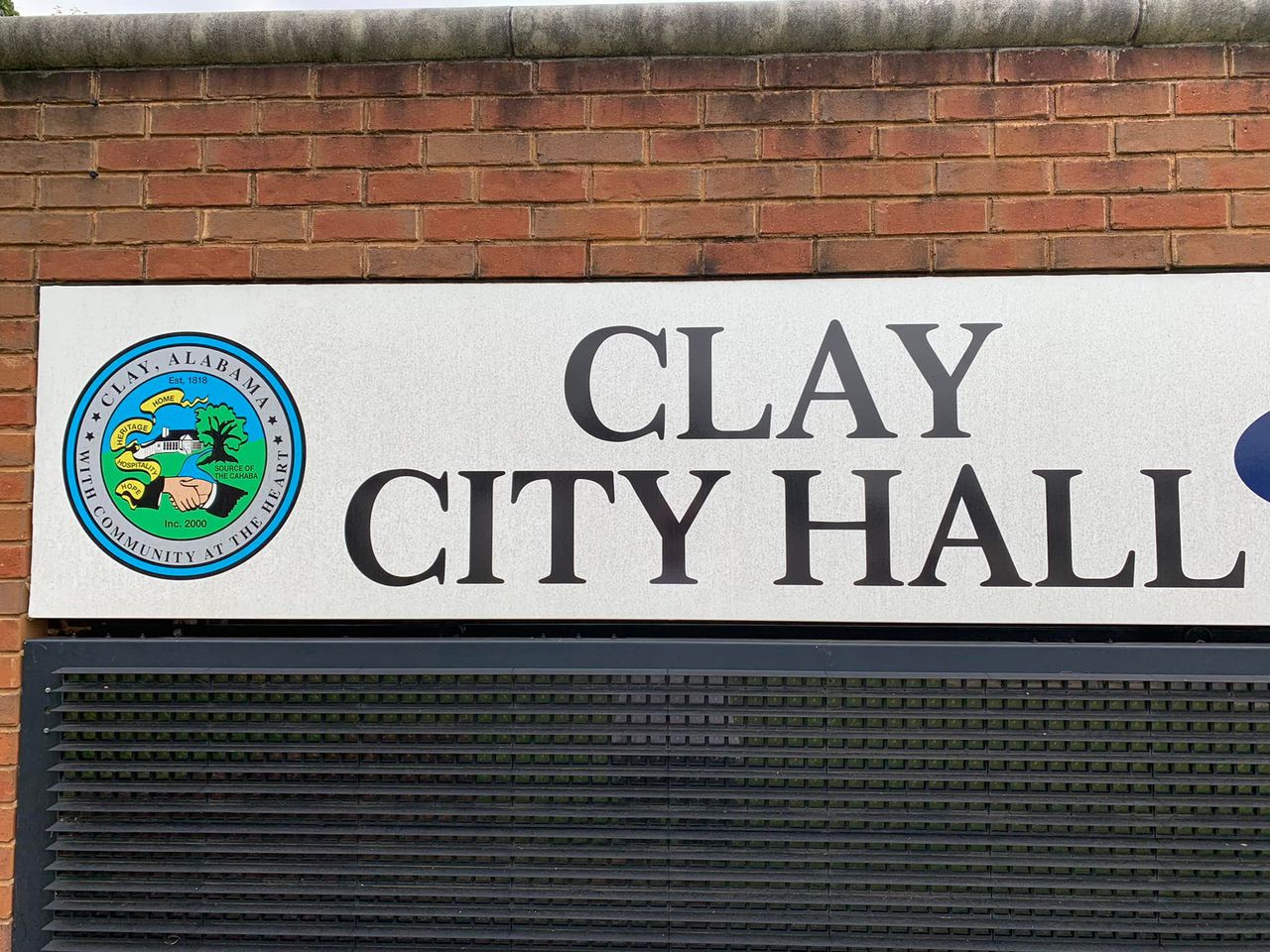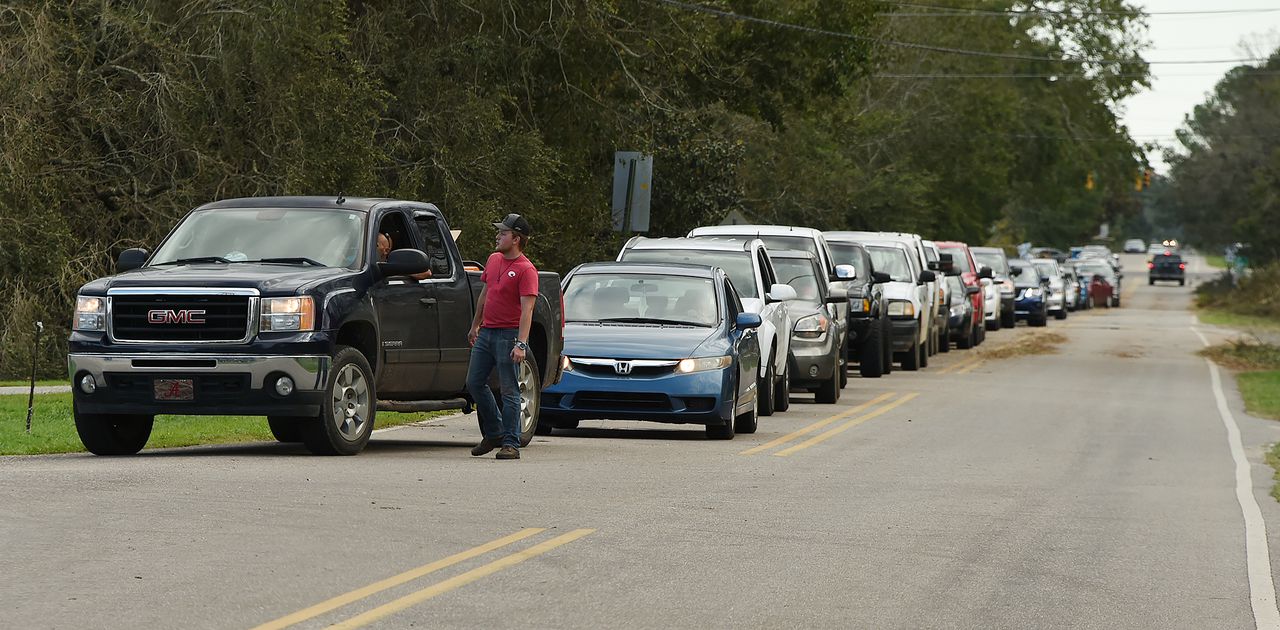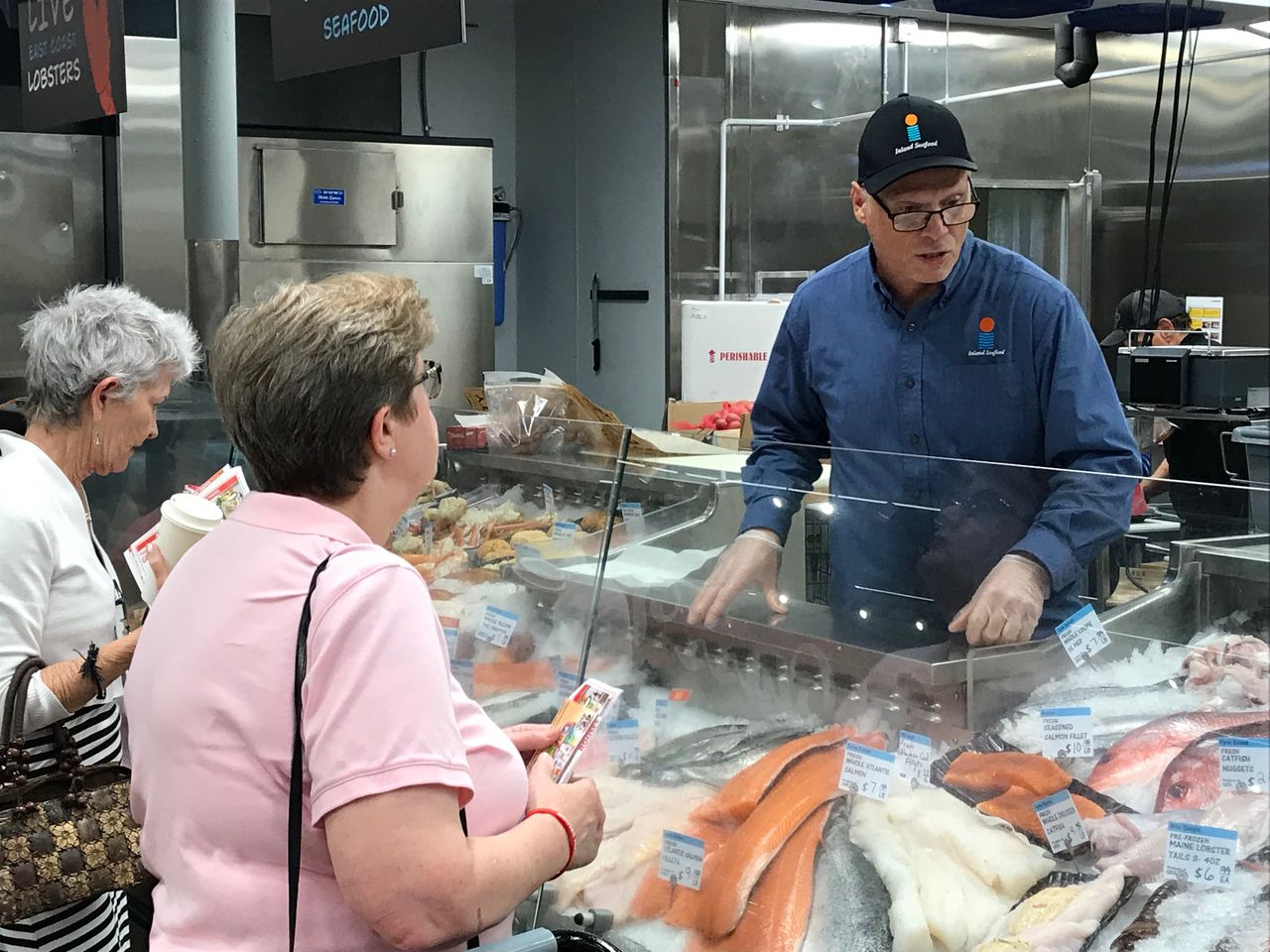Alabama cities sound alarms over grocery tax cut
Mayors and other local officials throughout Alabama are sounding alarms over what they believe could be political pressure to lower their sales taxes on groceries if Alabama state lawmakers vote to cut out the state portion.
The impact, many of these mayors say, could be devastating to the budgets that pay for police officer salaries, fire trucks, dump trucks, garbage collectors and more. It’s an issue Alabama cities from the Tennessee line to the Gulf of Mexico are keeping an eye on.
Related content:
“It would have a major impact on our budget and ability to provide service,” said Guntersville Mayor Leigh Dollar. “There is a concern among local leaders about a pressure to remove the local portion if (a sales tax cut in groceries) is passed by the state.”
The lofty question over what to do about city and county sales taxes on groceries loom large over the momentum in the State House for cutting the 4 percent state sales tax on grocery sales. Alabama Arise, which advocates on behalf of the poor; the conservative Alabama Policy Institute; and the Alabama Republican Party are pushing to have the state portion of the sales tax removed.
“I think it is unlikely that there would be a mass movement to repeal all local grocery taxes, but there could be additional rate reductions,” said Justin Bogie, senior director of fiscal policy for the Alabama Policy Institute (API).
The issue is also revisiting old questions in Alabama about home-rule authority that is not granted to city councils or county commissions when it comes to decisions over cutting and increasing taxes.
Few options
Under the proposals being considered by state lawmakers, municipal and county governments will be granted the authority to decide if their portion of sales taxes on groceries should be cut.
Separate legislation pitched by Rep. Chris England, D-Tuscaloosa, and Sen. Arthur Orr, R-Decatur, allows municipal and county governments to lower their sales tax rates on groceries, but does not grant them authority to increase them.
None of the bills are mandates, which means that if state lawmakers opt to cut the state’s 4 percent sales tax on groceries, there is no subsequent requirement for local governments to do the same.
But the measures are concerning enough for local officials who worry that if their councils or commissions grant a sales tax break on groceries – and revenues plummet — there would be no legal authority for them to recoup the losses.
“If the Legislature removes the sales tax on food and then experiences a budget shortfall years later, it has the ability to raise other taxes to generate replacement revenue,” said Sonny Brasfield, executive director with the Association of County Commissions of Alabama. “County commissions, however, lack the authority to levy general taxes to make up such a deficit. Clearly, counties will be put in a very difficult position unless the bills include the authority to restore lost revenue in leaner financial times.”
Under one consideration for the state cut is to replenish revenue losses through an elimination of the state’s income tax deduction for federal income tax.
“Cities don’t have that option,” said Foley Mayor Ralph Hellmich. “And yes, I am sure pressure would come to bear on all cities to reduce or eliminate tax.”
Said Saraland Mayor Dr. Howard Rubenstein, “Without the ability to substitute other revenue sources in its place, curtailing this tax income for our city would result in our inability to provide basic services such as police and fire protection, as well as meet other obligations and responsibilities that our city has to its citizens.”
Confusion, skepticism
Rouses Market in Daphne, Ala., on Friday, May 31, 2019. (John Sharp/[email protected]).
Indeed, the idea behind a grocery tax repeal seems lessened with only the state portion of the tax eliminated. Alabama, which has one of the highest sales tax burdens in the U.S., consists of cities with combined sales tax rates often ranging between 9-10 percent. That means that in addition to the state’s 4%, cities like Mobile (5%) and Huntsville (4.5%), assess a rate that is higher than what could be slashed by lawmakers.
It could also lead to confusion, which is something that Orr admits is a concern about the concept of removing the state portion of the sales tax on groceries.
“They will hear ‘cut on groceries,’ but the average Alabamian, I’m not confident, realizes most of the sales tax is at the city and county (levels),” he said. “Most cities and counties would not cut their taxes. They really don’t have a lot of options for local revenue past sales taxes.”
Sales taxes are a major source of local government funding. In Tuscaloosa, the city’s sales taxes consist of 47% of overall revenues. In Mobile, it’s well over 50%.
Jon Gray, a Republican Party strategist based in Mobile, said a state cut in the sales tax rate for groceries “will cause more confusion and problems than it will provide any solutions and relief.”
“When people get the bill, they will look at the young lady at the cash register and ask, ‘Why are you charging me a grocery tax? The Alabama Legislature did away with the grocery tax’” said Gray. “It will create more questions than what will be provided in solutions. That’s where the big failure is here.”
Supporters of the tax cut on the state level are skeptical that much will happen by local governments.
Bogie, with API, has long been an advocate for having the state portion of the sales tax on groceries cut but is not vocally advocating for city councils to start slashing the tax.
“While it should be ultimately left up to local governments and the people who live there to make that decision, they may find that there are additional benefits to lowering local grocery sales tax rates as well,” Bogie said.
Bipartisan optimism
Groups representing the interest of city governments in Alabama have not made an official statement on the initial proposals. The Alabama League of Municipalities is “neutral” on a possible state cut, as long as municipalities can “continue to make decisions at the local level on sales tax rates,” said Greg Cochran, executive director with the organization.
The “Big 10 Mayors” – which consists of mayors in the state’s 10 largest cities of Huntsville, Birmingham, Montgomery, Mobile, Tuscaloosa, Madison, Hoover, Auburn, Decatur, and Dothan — are still monitoring the proposals and have not weighed in with an official position.

8/3/22 NK Nicks Kids Luncheon NicksKids
Mayor Walt Maddox
Photo by jeff hansonCrimson Tide Photos / UA Athletics
Tuscaloosa Mayor Walt Maddox, who was the Democratic nominee for governor in 2018 and who ran on a platform of removing the sales tax on groceries, said that his city is prepared to make a local cut if legislation advances.
Maddox said as part of the city’s 2019 “Elevate Tuscaloosa Plan,” the city’s portion of the sales tax on groceries was slated to be removed. But he said the city was never granted legislative authority to proceed with the tax cut, so the city instead cut its environmental services fees (garbage, trash, and recycling).
“If the Legislature eliminates sales taxes on groceries, we are hopeful that local governments can opt-in as well,” Maddox said.
The Alabama Republican Party is also hopeful that some of the cities would examine the tax, similar to Tuscaloosa. Municipal elections are non-partisan, but county commission contests are not.
“I would love to see our cities and counties give their local citizens a break on the grocery tax as well,” said Alabama GOP Chairman John Wahl. “I hope they would look into this issue if their budgets allow.”
Earliest tax cutters

The City of Clay voted to reduce the sales tax on essential grocery items. (Photo by Greg Garrison/AL.com)
One city has already decided to try it, even if there are questions over whether it was legal for them to do so given home rule constraints in Alabama.
In the Jefferson County city of Clay, council members endorsed a 2-percentage point cut in their local sales tax on groceries. The cut lowered the overall sales tax burden at a grocery store to 8%, from 10% (4 percent assessed by the state, 2 percent by the city of Clay, 1% to Jefferson County and 1% to the Jefferson County School District).
The sales tax cut affects only revenues generated for city services. The cut does not impact local school budgets.
“We were trying to figure out a way to help everyone as much as we could,” said Clay Mayor Charles Webster, referring to a tax cut OK’d before Christmas. “We came up with this because it will pretty much help everyone. Everyone has to eat.”
Webster said the city, which has a Piggly Wiggly and Publix, has not experience a significant dip in revenues. He said Clay anticipated a $500,000 to $600,000 annual dip in overall revenues, which would be a hefty hit to a city that operates on a budget over $5 million.
Webster said the city also has $2.5 million in reserves, adding that “financially we are in good shape.”
“What happened, once we reduced the sales tax rate, with the cost of groceries being so high, our revenue hasn’t gone and has stayed pretty much the same,” he said. “It didn’t affect us that much.”
Webster admits that local officials in other parts of Alabama have contacted his city asking what they were doing.
“No one reduces sales taxes,” he said, noting that no one has challenged Clay’s tax cut on groceries. “No one has heard of that. But we’re doing this on a year-to-year basis. We’ll revisit it in September and October of next year. We still have a (full) sales tax rate in place for everything else.”
State Rep. Danny Garrett, R-Trussville, who chairs the Alabama House Ways and Means Education Committee, said what Clay did “was admirable’” in becoming the first to cut back on the sales tax for groceries.
Garrett said the state will need to be cautious in how it pursues the issue, arguing that Alabama is in “last place” when it comes to tax collections per capita. According to the Tax Foundation, the state ranks only ahead of Tennessee when it comes to state and local tax collections per capita.
“What we have on the table now is not just a grocery tax (cut) but a number of other things,” said Garrett. “When you’re last place in tax collections and we want to be a low tax state, if you go lower and lower, how will we be able to provide (services)?”
Concerns loom

A long line of people watch for gas for over an hour at the Elberta Farmer’s Co-op. Hurricane Sally damage to Baldwin County September 17, 2020. (Joe Songer | [email protected]).Joe Songer | [email protected]
That is a question city officials are wrestling with as state lawmakers deliberate this spring over whether Alabama should remove itself from a list of only three states that still tax groceries at a full amount without offering any rebates or credits. The other two – Mississippi and South Dakota – are not expected to cut back on their sales taxes on groceries this spring.
In Fairhope, Mayor Sherry Sullivan said she is worried about hamstringing a city’s ability to recoup sales tax revenues during an emergency, like a hurricane. She noted that the only businesses that are sometimes operating following a major hurricane are grocery stores and gas stations.
If a city decides to cut its sales tax on groceries, the options of going back and undoing that vote during an emergency do not exist, she said.
“It limits local officials’ ability to control local taxes and the pressure it will place on municipalities to reduce or eliminate the sales tax on groceries,” Sullivan said. “I am concerned about revenues during hurricane recovery.”
Ozark Mayor Mark Blankenship said the discussion about cutting the state portion should also weigh the concerns of the local officials, and the high costs of operating a city government.
“I question if anyone in Montgomery is aware that a fire truck, ambulance, or a garbage truck has increased as much as $200,000 to $300,000 over the last two to three years,” he said. “This revenue reduction has not been discussed in Ozark and I feel sure it will not get much traction.”
